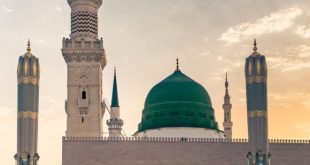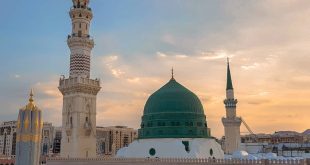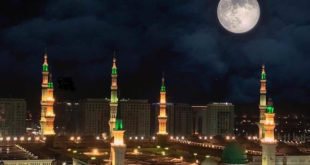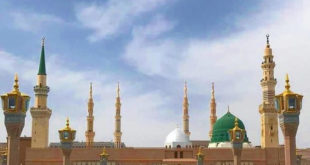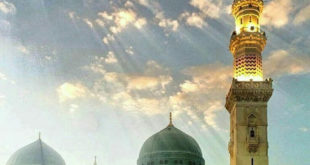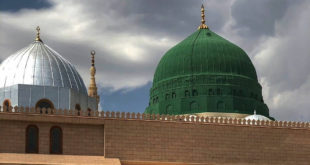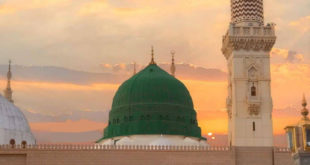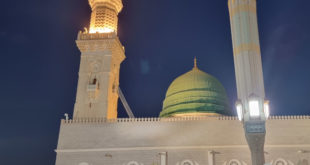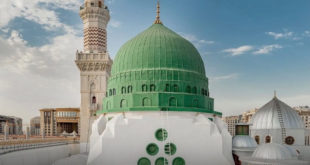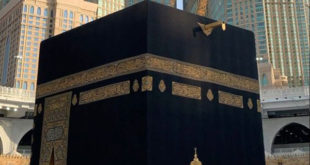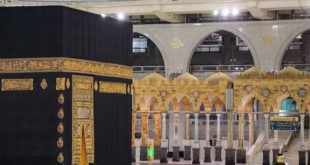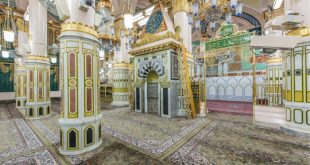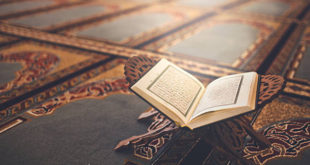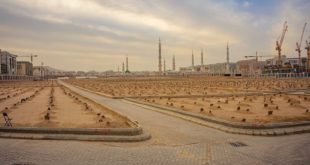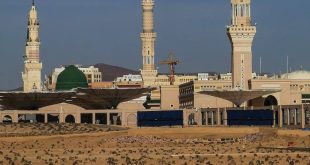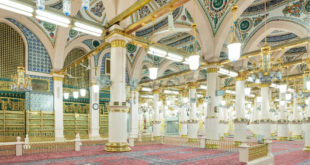The manner in which Rasulullah (sallallahu ‘alaihi wasallam) treated those who were harsh towards him عن عائشة رضي الله عنها أنها قالت: لم يكن رسول الله صلى الله عليه وسلم فاحشا ولا متفحشا ولا صخابا في الأسواق ولا يجزي بالسيئة السيئة ولكن يعفو ويصفح (الشمائل المحمدية للترمذي رقم: 330) Translation: …
Read More »Recent Posts
December, 2019
-
23 December
The Need for a Spiritual Guide in Self-Reformation
Hazrat Moulana Ashraf Ali Thanwi (rahmatullahi ‘alaih) once mentioned: This path of self-reformation leading to Allah Ta‘ala is extremely sensitive. Therefore, it is necessary for one to have a spiritual guide who is completely acquainted with the path. At times, a person does not understand the limits and begins to …
Read More » -
21 December
Duaa when entering a town or city
When entering a town or city, one should recite the following duaa thrice: اَللَّهُمّ بَارك لنَا فِيهَا O Allah, grant us barakah in this place Thereafter, one should recite the following duaa: اَللَّهُمَّ ارْزُقنَا جَنَاهَا وَحَبِّبنَا إِلَى أَهلِهَا وَحَبِّبْ صَالِحِى اَهلِهَا إِلَينَا O Allah, give us of its fruits and …
Read More » -
19 December
Allah Ta‘ala is not Subject to a System
Hazrat Mufti Ebrahim Salejee (Daamat Barakaatuhu) mentioned: If you want something to happen then there is a procedure to achieve it. If you follow the procedure, then you will achieve that which you desire. Though this is the system of Allah Ta‘ala, one should bear in mind that Allah Ta‘ala …
Read More » -
19 December
Iddat Q&A (Part 5)
Maintenance and shelter Speaker: Ml. Ebrahim Salajee Duration: 00:01:10 Format: mp3 Size: 477 KB Download If you did not understand the maslah or any aspect of the maslah, then refer your question to Muftionline.co.za
Read More »
-
The Brother-in-law of Rasulullah (sallallahu ‘alaihi wasallam)
Hazrat Talhah (radhiyallahu ‘anhu) was married to four wives. Each of his four wives was …
Read More » -
The Compass of the Hearts of the Sahaabah (radhiyallahu ‘anhum) – The Tolerance of Rasulullah (sallallahu ‘alaihi wasallam) – The Orchards of Love – Part Seventy Four
-
Tafseer of Surah Naazi’aat
-
The Extreme Generosity of Hazrat Talhah (radhiyallahu ‘anhu)
-
Securing the Blessings of Ramadhaan, Umrah and Hajj – The Tolerance of Rasulullah (sallallahu ‘alaihi wasallam) – The Orchards of Love – Part Seventy Three
-
Receiving Seventy Rewards
Hazrat Abdullah bin Amr bin Aas (radhiyallahu ‘anhuma) reported, “Whoever sends salutations upon Nabi (sallallahu ‘alaihi wasallam) once, Allah Ta‘ala and His angels will send seventy mercies and blessings upon him in return of his one Durood. Hence, whoever wishes to increase his Durood should increase it, and whoever wishes to decrease his Durood should decrease it (i.e. if he wants to earn great rewards, then he should increase his Durood).”
Read More » -
Increase in Sustenance
-
The Reward of Fasting on the Day of Arafah
-
The Angel that Stands at the Blessed Grave of Hazrat Rasulullah (sallallahu ‘alaihi wasallam) to Convey the Durood of the Ummah
-
Reciting Durood when Entering the Musjid
-
Sunnats and Aadaab of the Host – 3
3. Generosity and feeding the creation was a salient quality and attribute of all the …
Read More » -
Sunnats and Aadaab of the Host – 2
-
Sunnats and Aadaab of the Host – 1
-
Sunnats and Aadaab which every person needs to adhere to in his individual life – 9
-
Sunnats and Aadaab which every person needs to adhere to in his individual life – 8
-
Hazrat Ali (radhiyallahu ‘anhu) – Part Forty-One – Being Sent by Rasulullah (sallallahu ‘alaihi wasallam) to Level the Graves, Destroy Idols and Erase Pictures
Hazrat Ali (radhiyallahu ‘anhu) reports that on one occasion, Rasulullah (sallallahu ‘alaihi wasallam) attended a …
Read More » -
Rasulullah (sallallahu ‘alaihi wasallam) Approving of the Verdict of Hazrat Ali (radhiyallahu ‘anhu) – Part Forty
-
The True Ulamaa – Hazrat Ali (radhiyallahu ‘anhu) – Part Thirty Nine
-
Du‘aa for Assistance in Settling Debts – Hazrat Ali (radhiyallahu ‘anhu) – Part Thirty Eight
-
The Concern of Hazrat Ali (radhiyallahu ‘anhu) regarding Business being Conducted According to the Islamic Principles – Part Thirty Seven
 Ihyaaud Deen An Effort to Revive Deen in Totality
Ihyaaud Deen An Effort to Revive Deen in Totality




























